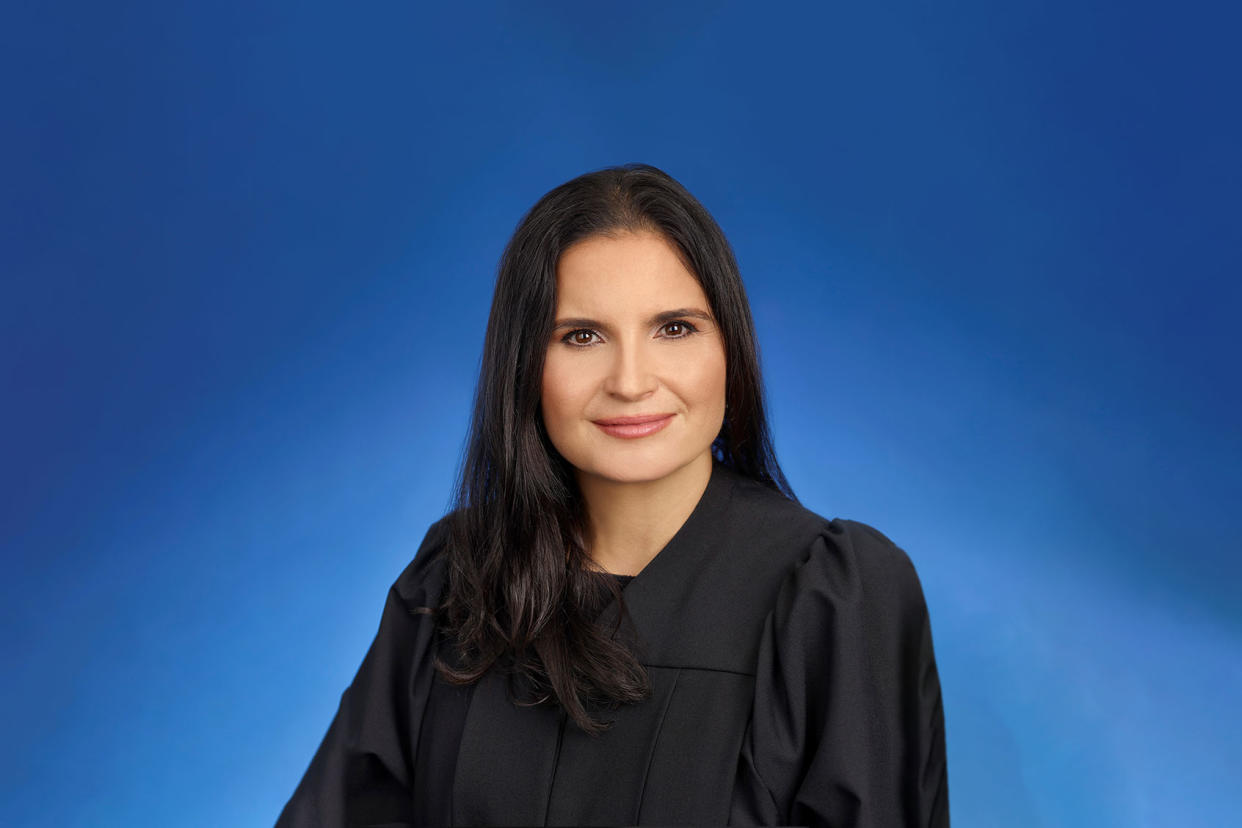"Nowhere to go": Experts say Judge Cannon reversed herself because Smith had her "dead to rights"

- Oops!Something went wrong.Please try again later.
- Oops!Something went wrong.Please try again later.
- Oops!Something went wrong.Please try again later.
The judge overseeing former President Donald Trump’s classified documents case may have done just enough to avoid being removed from the case.
That’s the assessment of legal observers after U.S. District Court Judge Aileen Cannon, a Trump appointee, reversed herself Tuesday, agreeing that special counsel Jack Smith had been correct and that there is indeed no public right to know, at this stage, the identities of people who might testify against the former president.
“[T]he bottom line is this,” Cannon wrote in a 24-page order: the “most faithful” reading of the law and precedent suggests “this case is not subject to a public right of access” because it is still in the discovery phase. In other words, Trump won’t be armed with the names of potentially two dozen government witnesses, meaning he’ll have to find other grist for Truth Social.
That’s a stark reversal from two months ago.
Back in February, Cannon sided with Trump’s attorneys (and a group of media organizations) in ruling that a “strong presumption of in favor of public access” required unsealing documents that could out witnesses in the case. She explicitly rejected concerns about “witness safety and intimidation,” arguing that the special counsel had failed to substantiate fears that the former president and his allies would do what they have done in just about every legal proceeding.
Though that decision did not immediately compel the release of such information, it may have prompted one witness, former Mar-a-Lago employee Brian Butler, to come forward on their own terms. “I think the American people have a right to know the facts, that this is not a witch hunt,” he told CNN, suggesting that he’d personally seen efforts to cover up Trump’s mishandling of classified national security information.
Others believed no witnesses would actually be outed because, before that could happen, Cannon herself would be removed from the case.
Writing for Slate, Norm Eisen, former special counsel for the House Judiciary Committee, and Joshua Kolb, a former law clerk for the Senate Judiciary Committee, argued that Cannon’s February decision had likely sealed her fate. They predicted the special counsel would ultimately appeal the ruling to the U.S. Court of Appeals for the 11th Circuit – and argued that he would have ample cause for demanding her removal.
“This is a step that is warranted only in rare circumstances, including when a judge has made a ‘clear error’ that led to ‘manifest injustice,’” they wrote. “In this instance, at Trump’s behest, Cannon has decided to unseal the identities of two dozen potential witnesses, along with sensitive information they provided to the government,” they continued, agreeing with Special Counsel Jack Smith that the ruling relied on a “striking” misreading of case law.
In backtracking — and preventing Smith from potentially using the witness issue to argue she lacks the competency and impartiality to oversee a trial — Cannon may well have saved her job.
“She had nowhere to go,” former U.S. Attorney Harry Litman, posted on X. “Smith had her dead to rights for following Trump’s guide (and violating [11th Circuit] law) so it was that or certain appeal.”
Some legal observers suggested this was the play all along: drag out a decision on Smith’s motion to reconsider her February order, ultimately agreeing with the special counsel but only after two months’ delay – and giving him just enough to prevent an appeal.
“We’ve seen her do this repeatedly,” former U.S. Attorney Joyce Vance wrote on X, noting Cannon’s familiarity with the appeals process as a former federal prosecutor herself. “She knows where the lines are, what rulings will get her appealed [and] how to rule so as to avoid that [without] giving much ground.”
In fact, while Cannon did agree that witnesses’ names should not be revealed for the time being, she rejected Smith’s arguments that their statements should be sealed too – a potential avenue for identifying them.
Randall Eliason, a former U.S. attorney who teaches law at George Washington University, argued that Cannon is a cynic who knows what she is doing.
“Cannon drags things out as long as possible and then walks right up to the edge without giving Smith anything concrete that he could take to the 11th Circuit,” he wrote on X.
But others took solace in Tuesday’s ruling. After all, while it did not give the special counsel everything he wanted, it came close.
The “moral” of the Cannon story is this, argued Andrew Weissmann, the lead prosecutor in Robert Mueller’s special counsel investigation, in a post on X: “She backs down to avoid an appeal that could result in her removal.”

